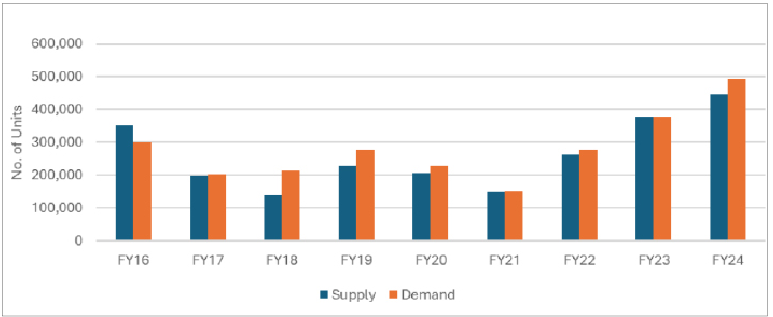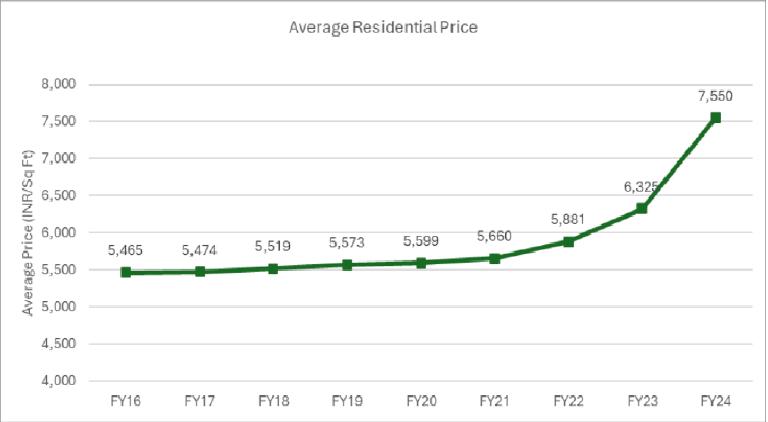Steady population growth coupled with urbanization consistently fuels housing demand. As more people migrate to cities for better opportunities, rising residential demand exerts upward pressure on prices.
Moreover, real estate investments can generate rental income, which potentially grows over time in response to inflation. As the cost of living rises, landlords typically adjust rental rates. Also, investors can leverage their real estate assets to borrow funds for further real estate acquisitions.
During inflationary periods, the cost of borrowing (interest rates) typically rises. However, investors who have secured fixed-rate financing before inflationary pressures set in can benefit from lower borrowing costs in real terms, enhancing the profitability of real estate investments.

“Real estate investments offer diversification benefits within a portfolio,” says Agarwal. “Unlike financial assets such as stocks and bonds, which may be negatively impacted by inflationary pressures, real estate – including residential, commercial, and retail – provides a tangible asset with intrinsic value. Diversifying investment portfolios with real estate holdings can mitigate overall portfolio risk and enhance long-term returns.”


Residential real estate prices have risen continuously since 2013, and in the last two years, appreciated at a CAGR of 13% while CPI inflation moderated by 1.3% on an annual average basis to 5.4% at the end of FY24. This trend signifies a clear outperformance of real estate prices compared to inflation.
























